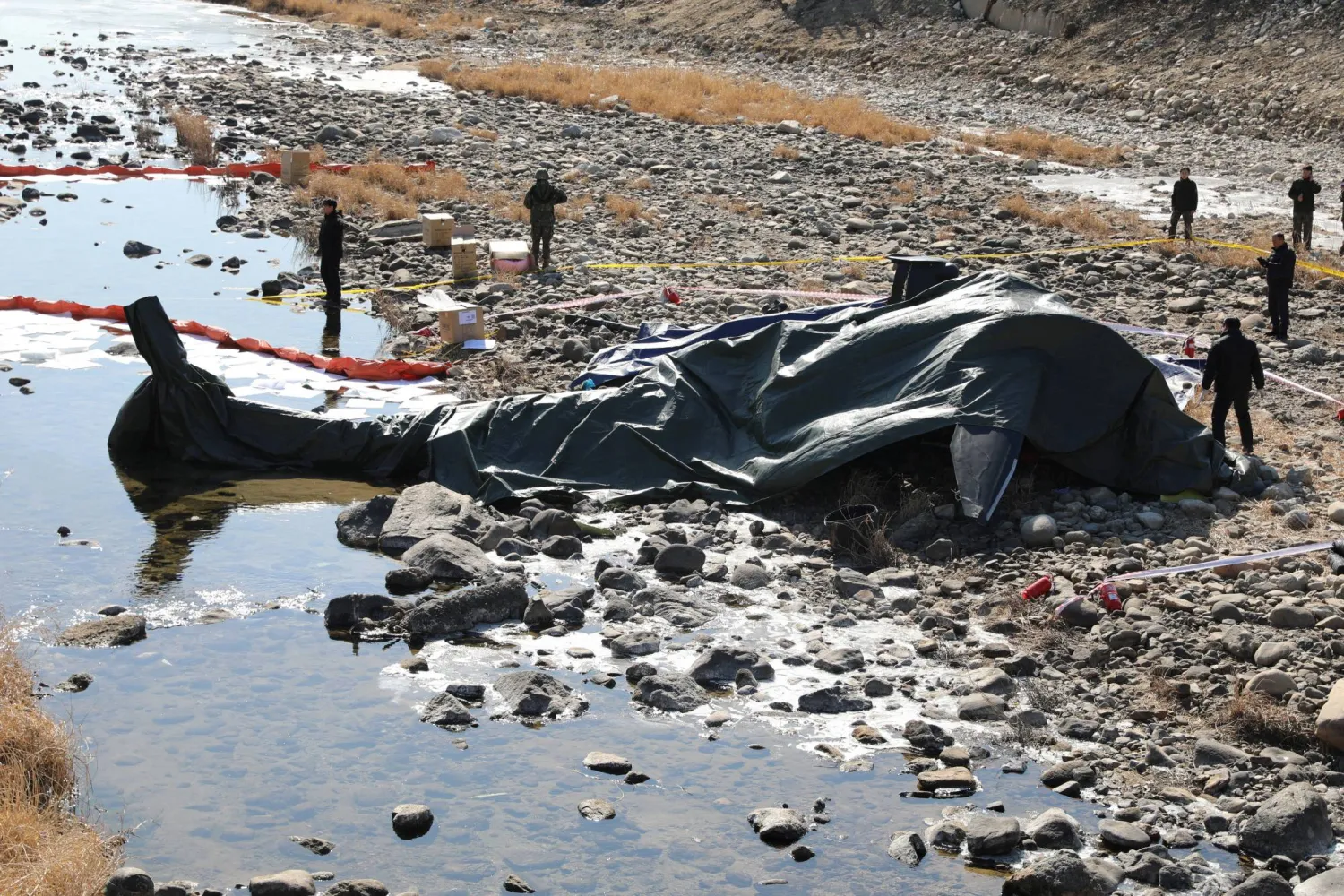Israel's arrest of almost 30 mostly Jewish citizens who allegedly spied for Iran in nine covert cells has caused alarm in the country and points to Tehran's biggest effort in decades to infiltrate its arch foe, four Israeli security sources said.
Among the unfulfilled goals of the alleged cells was the assassination of an Israeli nuclear scientist and former military officials, while one group gathered information on military bases and air defenses, security service Shin Bet has said.
Last week, the agency and Israel's police said a father and son team had passed on details of Israeli force movements including in the Golan Heights where they lived.
The arrests follow repeated efforts by Iranian intelligence operatives over the past two years to recruit ordinary Israelis to gather intelligence and carry out attacks in exchange for money, the four serving and former military and security officials told Reuters.
The sources asked not to be named due to the sensitivity of the matter.
In a statement sent to media after the wave of arrests, Iran’s UN mission did not confirm or deny seeking to recruit Israelis and said that “from a logical standpoint” any such efforts by Iranian intelligence services would focus on non-Iranian and non-Muslim individuals to lessen suspicion.
Targeted Groups
Unlike Iranian espionage operations in previous decades that recruited a high-profile businessman and a former cabinet minister, the new alleged spies were largely people on the fringes of Israeli society, including recent immigrants, an army deserter and a convicted sex offender, conversations with the sources, court records and official statements show.
Much of their activity was limited to spraying anti-Netanyahu or anti-government graffiti on walls and damaging cars, Shin Bet has said.
Concerns About Timing
Nonetheless, the scale of the arrests and involvement of so many Jewish Israelis, in addition to Arab citizens, has caused concern in Israel at a time it remains at war with Iran-backed Hamas in Gaza and that a ceasefire deal with Hezbollah remains fragile.
Shin Bet on Oct. 21 said the espionage activities were “among the most severe the state of Israel has known.”
The arrests also follow a wave of attempted hits and kidnappings linked to Tehran in Europe and the United States.
The unusual decision to provide detailed public accounts of the alleged plots was a move by Israel's security services to signal both to Iran and potential saboteurs inside Israel that they would be caught, Ben Hanan said.
“You want to alert the public. And you also want to make an example of people that may also have intentions or plans to co-operate with the enemy,” he said.
Israeli Intelligence Successes
Israel has achieved major intelligence successes over the past few years in a shadow war with its regional foe, including allegedly killing a top nuclear scientist. With the recent arrests Israel has “so far” thwarted Tehran's efforts to respond, one active military official said.
Iran has been weakened by Israel's attacks on its proxy Hezbollah in Lebanon, and the related fall of Tehran's ally, former president Bashar Assad in Syria.
Social Media Recruits
Iranian intelligence agencies often find potential recruits on social media platforms, Israeli police said in a video released in November warning of ongoing infiltration attempts.
The recruiting efforts are at times direct. One message sent to an Israeli civilian and seen by Reuters promised $15,000 in exchange for information, with an email and number to call.
Iran has also approached expatriate networks of Jews from Caucasus countries living in Canada and the United States, said one of the sources, a former senior official who worked on Israel's counter espionage efforts until 2007.
Israeli authorities have said publicly some of the Jewish suspects were originally from Caucasus countries.
Recruited individuals are first assigned innocuous-seeming tasks in return for money, before handlers gradually demand specific intelligence on targets, including about individuals and sensitive military infrastructure, backed by the threat of blackmail, said the former official.
Case of Victorsson
One Israeli suspect, Vladislav Victorsson, 30, was arrested on Oct. 14 along with his 18-year-old girlfriend in the Israeli city of Ramat Gan near Tel Aviv.
He had been jailed in 2015 for sex with minors as young as 14, according to a court indictment from that time.
An acquaintance of Victorsson told Reuters he had told her he had spoken to Iranians using the Telegram messaging app.
She said that Victorsson had lied to his handlers about his military experience.
The acquaintance declined to be named, citing safety fears.
Igal Dotan, Victorsson's lawyer, told Reuters he was representing the suspect, adding that the legal process would take time and that his client was being held in tough conditions.
Dotan said he could only respond to the current case and had not defended Victorsson in earlier trials.
Sabotage Activities
Shin Bet and police said Victorsson knew he was working for Iranian intelligence, carrying out tasks including spraying graffiti, hiding money, posting flyers and burning cars in the Hayarkon Park in Tel Aviv for which he received over $5,000.
According to the investigation made public by the security services, he was found to have subsequently agreed to carry out an assassination of an Israeli personality, throw a grenade into a house and also look to obtain a sniper rifle, pistols and fragmentation grenades.
He recruited his girlfriend, who was tasked with recruiting homeless people to photograph demonstrations, the security services said.









